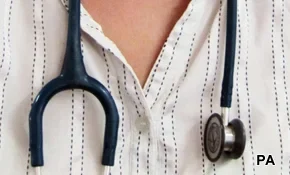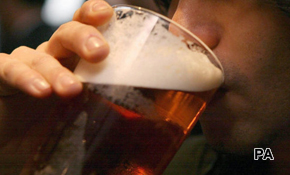The UK's Faculty of Public Health thinks alcohol labelling should carry highly-visible health warnings on bottles and cans to give people more information about the risks of drinking, in line with the ones borne by cigarette packets.
We gauged your reaction in Labs to the Faculty's proposal, by asking you to express your support or opposition to it, and why this was.
We got you to reflect on the example ‘warnings’ put forward by the Faculty – ranging from ‘alcohol is a drug that causes dependence’ and addiction, to ‘alcohol increases risks of violence and abuse’ and ‘alcohol reduces fertility in men and women’ – before reacting to the proposal.
Where the Faculty feels there is pressing scope for such an initiative to counter drink-related issues, Henry Ashworth, chief executive of the Portman Group, a social responsibility body associated with the drinks industry, articulates the opposite view, that is, with the vast majority of people drinking ‘responsibly’, pasting warnings of this nature on bottles and cans just isn’t necessary.
Speaking to the Guardian, Ashworth said: “Given that 78% of people drink within the chief medical officer's guidelines, it wouldn't be proportionate to have these more graphic warnings."
And the response was similarly split among you too: an almost equally-weighted Support/Opposition binary. We look at the broad themes that arose from your comments below, along with some representative quotes.
Of the key reasons given by the proposal's SUPPORTERS:

- The largest proportion of participants felt the public either needed educating about the long-term risks that could be posed by drinking, or reminding of what they had forgotten, to halt them in their tracks before drinking to excess. They felt that making such information clear, and highly-visible, would help counter what they felt was perceived as an acceptable culture of unhealthy drinking, where young people (often cited in responses) saw their escapades as a badge of honour:
“A reminder does no harm and may make individuals think about what they are buying” Mike H, Norfolk
“As I do know people who have become alcohol dependent and seen how it has ruined their life and how difficult it has been for them to get support and help I would support anything that would make people think before they drink!” Anon
“To reduce alcohol consumption overall in the UK” Susan, Exeter
- As another aspect of this, others in this positioned group felt that bold labelling would indirectly help to reduce the number of alcohol-related deaths and problems through this ‘education’, and thus the pressure on the NHS and other services dealing with such cases:
“Cost to public health. Government role is education information” Mel E, Lancashire
“It would reduce the pressure put on the health care system because of alcohol abuse” Lu, Dundee
“Alcohol is abused by people too stupid to understand their behaviour is caused by the alcohol. We should try to save themselves before the NHS and police have to pick up the pieces” Anon
- Following on, some pro-initiative backers in Labs thought that it made sense to label the warnings associated with alcohol in the same way that cigarette packets carry visible, bold warnings, and other drugs come with details of possible ‘side effects’:
“It's a drug and other drugs carry health warnings” Doreen, Morden
“To have similar effect on number of people drinking as the labelling on cigarettes” Leah, Preston
And of the key reasons given by those OPPOSED:
- Most of these participants said they felt the bolder labelling would be ineffectual in preventing people from drinking alcohol. The risks are already well publicised, they said. By not addressing the underlying issues that lead to alcohol-oriented problems, the implication from these responses was that it would be a wasted effort:
“I don't think anybody would take any notice” Anon
“It's a waste of time – I still smoke despite similar warnings being displayed on cigarette packets, so why would it make me stop drinking?” Claire, Devon
“Why would anyone think this wasn't a waste of time and money?” Anon
- Of secondary incidence, those against an introduction of starker labelling said the proposal represented state intervention to curb personal freedoms – the term ‘Nanny State’ was repeatedly employed. People should be free to make up their own minds, was the sentiment:
“At the end of the day it’s all about choice. I hate the idea of being warned about everything I do, it would be like living in a controlled environment” Anon
“I am against any manifestation of the so-called nanny state” Martyn D, Bath
“I think people have right to an unbiased choice when drinking. None of these warnings are certainties, in fact the vast majority of drinkers are sensible drinkers and these risks are unlikely to mean anything to them. It is easy to understand that drinking is bad for you, but there are also benefits from drinking. People should make the decision by themselves” Anon
- And thirdly, some participants answered that alcohol consumption has well-publicised positive effects too. Neither drinkers, nor the drinks industry, should be penalised or stigmatised for the minority’s irresponsibility and inability to moderate their drinking habits:
“It is unnecessary. There are also health benefits in moderate drinking. Young people should be educated
into responsible drinking. They should be encouraged to drink in 'locals' where they are monitored by older people. The Government should be supporting local pubs instead of trying to destroy them. Supermarkets should not be allowed to sell drinks at ridiculously low prices” Terry, Kendal
“Alcohol doesn't need health warnings because it causes absolutely no harm when used sensibly, and may in fact do us a lot of good…” ED, Northampton









